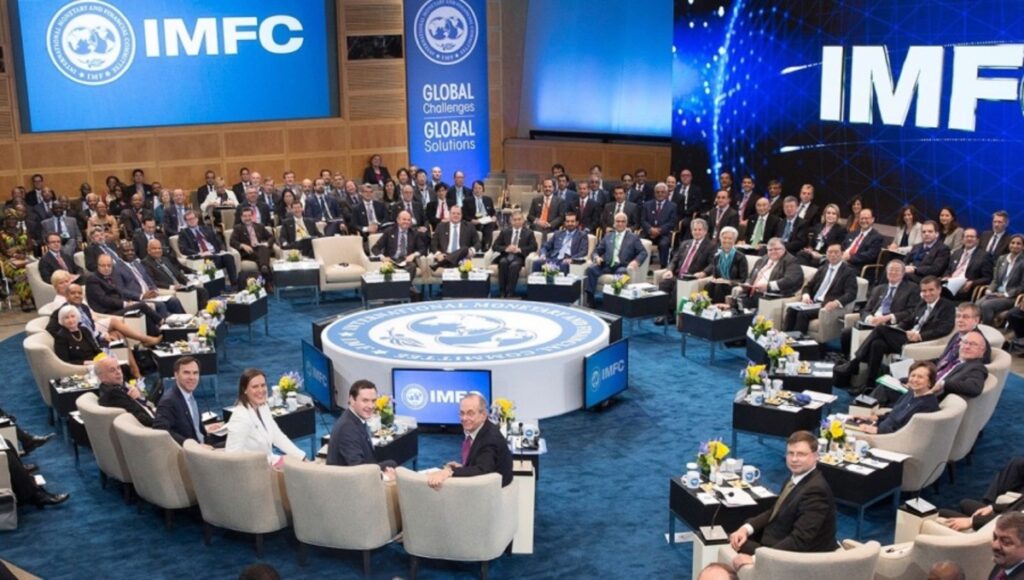The citizens of Kenya, particularly those impacted by economic challenges, are anxiously awaiting a crucial decision from the International Monetary Fund (IMF) regarding a multi-billion-dollar loan disbursement vital for the country’s economic stability. This decision is being discussed by the IMF Executive Board in Washington, D.C., with effects that will be felt across Kenya. The meeting was scheduled for October 30, 2024, with the decision expected soon after.

The International Monetary Fund (IMF) Members During An Earlier Session; Photo Courtesy
The loan is essential for addressing Kenya’s fiscal challenges, including a Sh346 billion revenue shortfall caused by the withdrawal of the Finance Bill, 2024, which aimed to broaden the tax base and eliminate fuel subsidies.
As Kenya stands on the brink of a pivotal decision by the IMF, public sentiment is rife with anxiety. Many citizens are concerned about the implications of this loan on their lives. Mary Wambui, a small business owner in Nairobi, states, “We need this support to get back on our feet. Without it, I fear for my business and my family’s future.”
However, scepticism looms over the government’s ability to meet the stringent IMF conditions, including combating corruption and implementing tax reforms. University student John Mwangi expresses doubt, saying, “I don’t trust them to follow through. We’ve seen promises made before that were never kept.”
Furthermore, fears of increased taxation are palpable among the public. Teacher Aisha Juma remarks, “We are already struggling to make ends meet. Any new taxes will only make things worse for families like mine.”
In this climate of uncertainty, Dr Peter Ochieng, an economist at the University of Nairobi, offers a glimmer of hope: “This loan could be a turning point for our economy, but it hinges on the government’s willingness to make tough choices.”
The outcome of the IMF’s decision could shape Kenya’s economic landscape for years to come, and citizens are keenly aware that their futures may depend on these critical discussions.